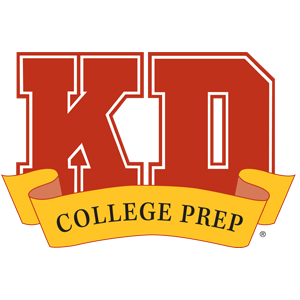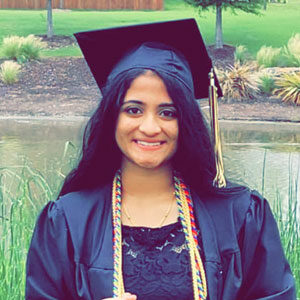In recent years, the college application essay has become an increasingly important piece of a student’s college application. A powerful essay can help students stand out in a growing sea of applicants.
With test optional admissions policies still in play at many universities across the U.S., admissions officers may rely more and more on other pieces of the application, like the essay, transcript, and activity list. Many colleges also require additional written pieces, called “supplemental essays.”
Admissions officers often see a lot of numbers: GPA, class rank, test scores, etc. While those numbers can show a student’s academic potential, they don’t show who the student is as a person. A good college essay can help fill the gap. Read on to learn how to write the college essay step-by-step.
Navigate through this article:
Definitions: Two Types of Essays
There are two different types of college essays, and they each play a different role in the college admissions process.
Personal statement: Colleges sometimes refer to this type of essay as the “general admissions essay.” This is the most common type of admissions essay and is often one of the core requirements for general admission. The content is usually centered around an open-ended essay prompt that showcases one’s interests, experiences, or a personal trait. Word count usually ranges between 400-600 words in length.
Supplemental essay: Some colleges (or competitive majors and honor’s programs within a college) require students to write additional essays that answer specific questions, like “Why did you choose this major?” or “What unique perspective will you bring to the table?” These short-answer prompts essays are often shorter, consisting of around 150-300 words. However, word count often varies depending on the college and the prompt given.
Now that you know the nuances between the different types of college essays, let’s dive into how to start the writing process.
15 Steps to Building a Memorable College Essay
The Common App typically releases essay prompts in June of each year. We recommend that students start writing their main essays then—right before senior year. Soon after supplemental essays come out around August. Take care of your personal statement draft first so that you’re ready to start the ball rolling on the supplements by the end of summer.
Forethought is critical. The idea for this essay won’t just jump into your lap. You may have several possible topics in mind. However, your essay should center around one main topic or theme. Personal statements are typically about 500-700 words in length (check with the college for specific word count). That’s not a lot of space to work with, and you’ll want to make every word count.
If you have a couple of strong topics to choose from, why not “sketch” them out to get a better feel for how much you like these ideas (or how much you have to actually say about them). Write up a short summary of each story for your “sketch.” Then choose your favorite.
Another place to start is to reflect on a meaningful moment in your life. During our Apply Now! Boot Camps, our college counseling team provides exercises to help students brainstorm essay ideas. Instructors then evaluate the chosen topics, provide feedback, edit first drafts, and help students with various other aspects of the college application.
The trick is to determine the topic that will allow you to best express your voice. You’ll need to tell a story about yourself—one that will let colleges get to know you a bit better.
If you are applying to a handful of competitive colleges, you will likely write more than just one or two essays. The personal statement can transfer to more than one application, but the supplements are really where you give each college what they want. For example, if you respond to a “Why this college?” supplemental prompt, then your responses most certainly should vary from college to college.
Once you’ve settled on a topic or story you want to tell, give it a go! We all know first drafts aren’t pretty, so don’t worry about making it pretty. Just write it or flesh out the sketch you made when prewriting. At this stage, don’t worry about surpassing the word count. It’s easier to cut things later.
Whew! You did it! You wrote the thing, and it’s only June 5th! You are amazing. Now go enjoy some summer (or prep for your final take of the ACT® test in July or the SAT® test in August). After a break of at least one week, reread your draft. Remember writing that? After your week-long writing break you should be in a more objective mindset to judge what you’ve written.
Even better than reviewing it yourself, let someone you trust evaluate your essay. While this can be a family member, it may be better if it isn’t. It does help, however, that your reader be an adult who has finished college.
Remember, your application audience is going to be a panel of adults, so you should try to get feedback from someone with a similar perspective before finalizing your essay. Family and peers tend to view you in a different light than someone outside your inner circle. You want your reader to have an objective perspective of your writing.
You and your outside reader should try to assess the “shape” of your story. Basically, does it have a beginning, middle, and end like all good stories? It’s okay to be unconventional, but is your intended structure and message clear to your reader? That’s the hard part. You know you, but your application readers have to GET TO KNOW you through this essay.
Another point for you and your reader to assess is “voice.” In other words, does this essay actually sound like something you would say out loud. Would you say “utilize” and “corroborate” in everyday speech? If not, replace those with words you would use on a daily basis. You should sound personal in your personal statement—that’s the whole point.
Overall, does this piece of writing share something special or interesting about you? We’re not talking about your good grades or academic record. The admissions officers will review that in your school transcript. Instead, showcase a story that best defines you. Think about ways you can better do this in a limited number of words.
Some essay prompts are open-ended, while others are centered around a specific topic or question. If you chose to respond to a prompt, a third point for you and your reader to critique is whether or not you effectively answered the prompt. Why didn’t we do this first, you ask? Well, sure, the prompt should have helped you generate some initial ideas, but now it’s time to assess if you accomplished the mission of the essay. Did you actually answer every part of the prompt? Usually there are a couple of parts. (Hint: the one people usually forget is the reflection component).
Okay, give this essay another try. Maybe your topic still works, but your details don’t land for your reader. No problem. Try again. You are wiser now and are proving you can take criticism positively! After all, it’s better to know what’s wrong now when you still have time to review. Nothing’s worse than hastily writing an essay last-minute and wondering “What didn’t work?” when your application is rejected. Take the time to revise now, and you’ll thank yourself later.
During your rewrite, have an open mind when incorporating the suggestions from your outside reader. That’s why you asked them to help in the first place! If your reader says a paragraph was confusing and hard to follow, don’t argue the point. You won’t have the opportunity to explain what you really meant to an admissions officer anyway. Trust the process. Rewrite for the reader to see if things click this time.
Note: This is going to sound contradictory to our previous statement, but also know that it’s okay to trust your instinct. The essay is about you, after all! If there’s a topic or sentence that you really think shows who you are, it’s okay to consider keeping it. There are many ways to restructure and edit an essay. Use your best judgement. And above all else, please don’t let a parent or sibling rewrite your essay for you.
Ask the same reader to look over your essay for a second review. This is an important aspect of your application, so you want to be sure that you’ve put your best work forward. Your reader will notice the changes you made and let you know if you cleared things up! If they still find your draft lacking in places, well… see step 13.
Rewrite again and again as needed, getting feedback on each draft. It’s normal for a stellar admissions essay to go through multiple rounds of revisions.
At this point, you may wonder, Who in the world has the patience to read my essays multiple times? Asking someone to be your essay reader is a big ask—especially when it’s a family friend, aunt, or uncle. Generally, high school English teachers have limited bandwidth as well.
We suggest going with a trained professional and pay this person for their time. This avenue is a great way to get timely, unbiased help. If you’ve read all the way to point 13, you are serious about this—or know you need serious help. Get a professional editor as an investment in yourself and your application.
If you’ve gone with a professional reader, the perk is a professional proofread of your paper at the end and last-minute editing tips! Even if you’re a grammar whiz, get someone else to proof for you. Even strong writers will need a human eye to review the piece for typos and other common mistakes.
Don’t be afraid to be creative with your essay! Experiment with the timeline or start with an interesting “flashback,” but also know that sometimes the best, most authentic presentation is the simplest, most straightforward one. It’s okay to show weakness in order to show growth. It’s not okay to be vague and generically non-specific about the events and scenes in your essay.
Bottom line: Be authentic but find an interesting way to tell your story. Admissions officers will skim through and forget a boring essay, even if it’s well-written. At least consider incorporating scenes and dialogue to tell your story.
How should I begin my college essay?
So you’re ready to start! Pick a prompt and sketch out some options! Follow steps 1-3 from my 15-step guide. If you’re looking for a specific technique to start with—or a hook as some people call it—jumping right into a scene of your story is often effective. The benefit is we get straight to action.
In another technique, a lot of people warm up with a general truth or observation about the world. This is almost always a terrible idea. General statements are pretty boring to start with, unless you’re unusually insightful or witty (See the first sentence of my favorite novel Pride and Prejudice for an effective first sentence employing a general truth statement—packed with ironic humor).
Examples of Introductory Paragraphs
One trick to avoid a generic opening sentence is to simply cut the generic statement you are tempted to write. (Ex: “From the dawn of time…” or “Computers are the foundation of advanced society.” Go ahead and cut these.)
Or work in your thematic sentence AFTER you’ve given a specific story or example. In essence, start specific before you make general truth statements. Take a look at the essay excerpt below.
ESSAY INTRO: EXAMPLE #1
Where imagination fails, logic provides. As a hopeless romantic I contradict myself, but the tangible sensibility of having an answer at the end of a process has always provided reason to try and find that definite solution. I like when things make sense.
I read between ten and twenty books per month, and the bane of my existence is an ambiguous ending—a plague transcending genres and leaving the reader to decide how the story ends. Each time, I close the book, fling it across the room, and search through thousands of “ending explained” YouTube videos until I find some semblance of an answer. If the problem exists, there must be an answer.
What if we swapped the first paragraph, which starts with a generic, cryptic opening sentence, into the second paragraph position:
ESSAY INTRO: EXAMPLE #2
I read between ten and twenty books per month, and the bane of my existence is an ambiguous ending—a plague transcending genres and leaving the reader to decide how the story ends. Each time, I close the book, fling it across the room, and search through thousands of “ending explained” YouTube videos until I find some semblance of an answer. If the problem exists, there must be an answer.
Where imagination fails, logic provides. As a hopeless romantic I contradict myself, but the tangible sensibility of having an answer at the end of a process has always provided reason to try and find that definite solution. I like when things make sense.
Now the essay opens with a more interesting, personal sentence about the author’s reading habits. It’s much more engaging. What used to be the opening paragraph in the first draft now serves as a reflection or revelation on the personal details. Your job in the opening sentence is to help your reader connect with you as soon as possible. Resist the urge to blandly restate the key words of the prompt.
If starting the essay is holding you up, just skip the beginning or write something bland that you know you’ll change in revision. In fact, you might uncover a creative opening while you’re in the middle of writing your draft.
What is the format of a college essay?
Ultimately, this is not a five-paragraph, MLA-formatted essay for your English teacher. Your audience is 1-2 college-graduated admissions officers (sometimes a committee if they are on the fence about your application) who have hundreds and hundreds of essays to read and can only give your application 8-15 minutes of review time. They get bored. They get depressed by all the bad writing they see (A bunch of them were probably English majors. They notice every grammar mistake, and it tortures them).
High school students often say the same boring things in their essays, thinking they’re writing something “safe” when, in fact, playing it “safe” is often the most dangerous route you can take. This essay is a genre called creative non-fiction. Check it out! “CNF” is a big deal in literary magazines right now. The tone of this essay should lean more toward memoir than report.
Think of the family members you mention as characters—describe them and give them some lines of dialogue. You’ve got to tell a story about yourself and incorporate insightful reflection on your growth as a human being. You don’t need any exact number of paragraphs—though you should use paragraphs to effectively pace and shape your story.
How long should a college essay be?
A Common App prompt gives you 650 words. That runs to almost a page and a half, single-spaced. You should use all the word space they give you. Coming up short (under 600 words) is a missed opportunity, so make every word count.
Keep in mind that there are other essays beyond the personal statement. Those prompts (aka supplemental essays) come out at the end of the summer and run anywhere between 50-500 words. The most common supplement size is 250-300 words.
Supplements can be highly unique for different colleges. You can really get to know a college and what they care about from the supplement prompts. Those are usually more straightforward questions like “Why did you choose this major?” or “Why is this school a good fit for you?” Keep in mind that selective colleges tend to have you write 4-8 supplements of varying lengths. If your college list is 10 schools long, you might be writing 40-80 little essays. Yikes. This is why you start early.
How do I write a well-written college essay?
The Dos: Some general essay-writing tips
Give yourself time to write and revise
There’s a lot of work that goes into writing a powerful college essay. It takes time to do it right. You’ll need several weeks or even months to brainstorm, write, and revise.
Be authentic
Use words you would actually say out loud in a physical context. Write in such a way that a friend or family member of yours could “hear” your “voice” in the expressions and word choices.
Show your creativity
It’s ok to think outside the box. Explore ways to make your essays engaging and think about how you can stand out among the other applicants in a tasteful and interesting way.
Use active voice
Active voice sentence structures sounds more direct, and they’re more efficient.
- Bad example: “The ice cream was gobbled up by her.”
- Change to: “Kim gobbled up the ice cream.”
Balance sentence length
If all your paragraph’s sentences are the same length, your tone can seem robotic. Aim to intersperse longer sentences with shorter ones.
Remember, shorter sentences are useful when you want to be direct. Create emphasis this way. Shorter sentences also have the benefit of sounding less formal and sticking in your reader’s mind. In general, short sentences are those that consist of less than 25 words.
Vary sentence structure
Don’t stack multiple compound or compound-complex sentence structures. In this vein, try to avoid back-to-back sentences containing lists.
The Don’ts: What should you not do in a college essay?
Remove redundancies
Avoid saying the same thing twice. Remember, every word or statement should add value. Don’t come off as too repetitive.
- Bad example: “I had to research and learn how to create and modify the files.”
- A fix: “I had to learn how to create and modify the files.”
Avoid flowery introductory phrases and transitions
These are typically just fluff and don’t advance your story meaningfully.
Eliminate needless, generic modifiers
Eliminate needless, generic modifiers: Try to cut words like “very,” “great,” and “really” from your sentences. You may think you’re intensifying your point, but you’re actually doing the opposite and watering down your words.
Don’t sound overly formal
Instead, write as if you were speaking passionately to a person, stating your desires and goals. While formal writing is perfect for a research paper, it falls flat in a personal essay.
- Bad example: “Working to achieve a common goal, whether it is an assigned project or independent research would not only help to catalyze the process, but it would also help to unify the students within the program as we collectively pursue our interests.”
- A fix: “Working for a common goal could help draw our group closer together.”
Avoid a tone of superiority
Don’t try to sound like you’ve already won a Nobel prize. Refocus on your desire to deepen your own intellectual bounds. Be humble about what you have to learn, not braggy about all your knowledge and accomplishments. (Tip: do the bragging in your resume or activities list in a different section of your application)
- Bad example: “I can incorporate my holistic understanding of the world to improve upon the intellectual communities within the university.”
- A fix: “I can’t wait to join and learn from these campus societies.”
Don’t pack every detail into one sentence
Avoid this by composing sentences that you can actually say out loud without losing your breath or the main point.
- Bad example: “By providing collaborative support to my peers and offering holistic standpoints on information so as to develop more complex thoughts to myself and my peers, I know that I can adequately contribute to the honor’s program.”
- A fix: “I crave the opportunity to learn through collaboration. In the honor’s program, I hope to learn through listening to peer perspectives and sharing my own experiences.”
Don’t be vague
Use specific examples and stories whenever possible. Avoid words like “they” and “it,” and use people’s names when you can.
Avoid misplaced modifiers
Be strategic about where you place descriptive clauses or phrases. You don’t want to confuse your reader.
Bad example: “In 1951, Henrietta Lacks’, a young black mother, cancerous cells were given to a researcher without her consent.”
A fix: “In 1951 researchers took cancerous cells from Henrietta Lacks, a young black mother, without her consent.”
Need help with your college application essays?
At KD College Prep, we offer a variety of college counseling services to help students stand out in the admissions process. If you’re looking for college essay help, book a free consultation to discuss your needs with a member of our team. After the initial call we can conduct a free, basic assessment on essay quality and connect you with an essay editor.














































